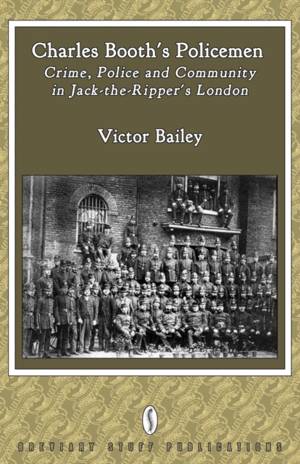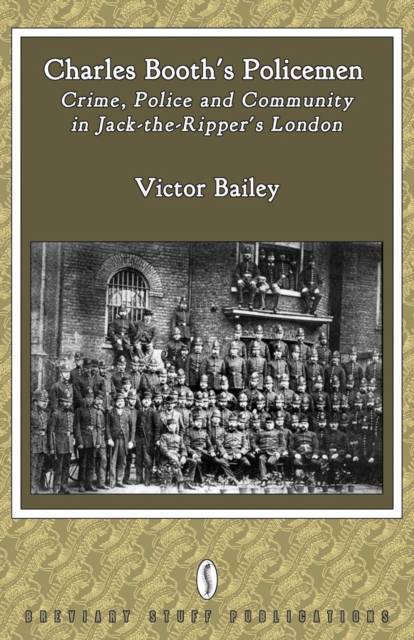
Vous voulez être sûr que vos cadeaux seront sous le sapin de Noël à temps? Nos magasins vous accueillent à bras ouverts. La plupart de nos magasins sont ouverts également les dimanches, vous pouvez vérifier les heures d'ouvertures sur notre site.
- Retrait gratuit dans votre magasin Club
- 7.000.000 titres dans notre catalogue
- Payer en toute sécurité
- Toujours un magasin près de chez vous
Vous voulez être sûr que vos cadeaux seront sous le sapin de Noël à temps? Nos magasins vous accueillent à bras ouverts. La plupart de nos magasins sont ouverts également les dimanches, vous pouvez vérifier les heures d'ouvertures sur notre site.
- Retrait gratuit dans votre magasin Club
- 7.000.0000 titres dans notre catalogue
- Payer en toute sécurité
- Toujours un magasin près de chez vous
Charles Booth's Policemen
Crime, Police and Community in Jack-The-Ripper's London
Victor Bailey
Livre broché | Anglais
23,95 €
+ 47 points
Description
What explains the law-abidingness of late Victorian England? A number of modern historians contend that the answer lies with the effectiveness of policing, and with the imposition of a 'policeman-state' in Victorian and Edwardian England. Exploiting the vast archive that Charles Booth amassed for his leviathan social investigation to explore the social order of London's East End, Life and Labour of the People in London, this volume takes issue with this answer. The East End was notorious as a region of unalleviated poverty, crime and immorality, the district where the issue of large-scale Jewish immigration was first confronted, and where Jack-the-Ripper found his victims. Victor Bailey reveals that historians have overestimated the extent to which policemen were able or willing to intervene in the daily behaviour of inhabitants to suppress law breaking. He shows that the commission and repression of crime were linked not only to the structures of law enforcement but also to levels of community solidarity, associational life, family integration, and parental authority. Social order was a function less of policing than of a complex combination of informal family and community sanctions, the mixed welfare of charity and state support, the new board schools, slum clearance, and the negotiated justice of the magistrates' courts. The conclusions should lead us to question the role of the state in the making of social order, and to reinstate the force of informal social sanctioning.
Spécifications
Parties prenantes
- Auteur(s) :
- Editeur:
Contenu
- Nombre de pages :
- 164
- Langue:
- Anglais
Caractéristiques
- EAN:
- 9780957000568
- Date de parution :
- 22-02-14
- Format:
- Livre broché
- Format numérique:
- Trade paperback (VS)
- Dimensions :
- 140 mm x 216 mm
- Poids :
- 195 g







